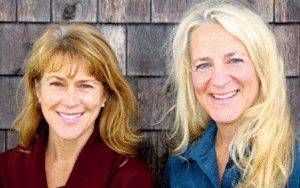When Friends of Casco Bay formed in 1989, the water was some of the most polluted in the nation.
Today, the bay is far cleaner and healthier, with strong protections in place thanks in large part to Cathy Ramsdell, the organization’s executive director since 2003.
Ramsdell ushered Friends toward a strong financial footing and organizational structure while leading staff and infusing programs with her lifelong passion for the marine environment.
During her tenure, initiatives have tackled sewage and pesticide pollution; launched water quality monitoring programs and educational outreach; and improved vessel pump-out services. Last year, Friends announced a 10-year plan to address climate change.
“Our baykeeper was able to make the point that our coastal land use laws need to be updated to take sea level rise into account…”
A graduate of College of the Atlantic in Bar Harbor, where she obtained a degree in human ecology, Ramsdell’s early career took her to the Bering Strait to study seabirds, Georgia’s barrier islands to protect nesting loggerhead sea turtles, and the Gulf of Maine to catalogue whales. As a certified professional accountant, she’s advised executive directors, business owners, and family foundations on financial, professional, and organizational development.
Preparing for retirement in September, she reflected on her work.
The Working Waterfront: What brought you to Friends?
Cathy Ramsdell: A lot of my consulting focused on the world of nonprofit organizations. Someone told me Friends of Casco Bay was looking for their first full-time executive director. I thought, “This is perfect for what I’ve been doing. I can do this for two or three years, get things on a solid financial footing, then pass it to someone else.” I’ve been here ever since and loved every minute of it.
WW: What appealed to you?
CR: The approach to the work in the marine environment was integrated with the idea of community. They wanted a person to work with the waterfront and the community to improve and protect the health of the bay.
To me, that felt like a human ecology approach, rather than pointing fingers and saying, “You’re the bad guys and we’re the good guys.” We’ve found that sitting down and having long, hard conversations has been really effective.

WW: How do you have those conversations in today’s era of polarization?
CR: People are often dug in on opposite sides. But one thing that’s magical is that the health of Casco Bay is a value everyone shares. We want to build areas of commonality.
WW: What climate change impacts are you seeing?
CR: Things in the bay are changing quickly. We rely on scientific data as the basis of the work we do. It’s a conversation-starter to say, “This is what we’re seeing for change.”
We get involved at the local and state level. For example, when the legislature took up a sea level rise bill, our baykeeper was able to successfully make the point that our coastal land use laws need to be updated to take sea level rise into account, so we can start doing things like protect critical infrastructure along the coast.
We have close to 30 years of data now. This will allow us to ask how conditions in the bay are changing. Weather patterns are very different, with long periods of drought and rain events that are very intense. We’re seeing more erosion, more sediments, more nutrients being brought to the bay from stormwater runoff and rivers and streams. We’re seeing big changes in acidity levels.
All of those data sets are available on our website. One of our long-term organizational goals is to collect these data for many years to come so we can see what’s happening over time.
WW: What are some threats that have changed over time?
CR: We’ve spent a lot of time working on oil spill preparedness. Bacterial closures on clam flats are still an issue, but less so. Nutrient loading and rising temperature will likely be a growing problem. In the 2000s, we started identifying sources of nitrogen. We continue to do that. Anywhere you have large concentration of humans, that’s where you have large concentrations of nitrogen.
And climate change is galloping right along. There are going to be unexpected disastrous storm surges and storms. That means a lot more degraded water quality, drought, and lots of runoff.
WW: What’s your message going forward?
CR: We don’t do this work alone. We actively work with many other entities. There’s a lot of collaboration. That’s how we get the work done. It takes longer but, at the end of the day, the work is much more effective. It’s really important to share the work and
share the figuring out of what needs to be done and why.





